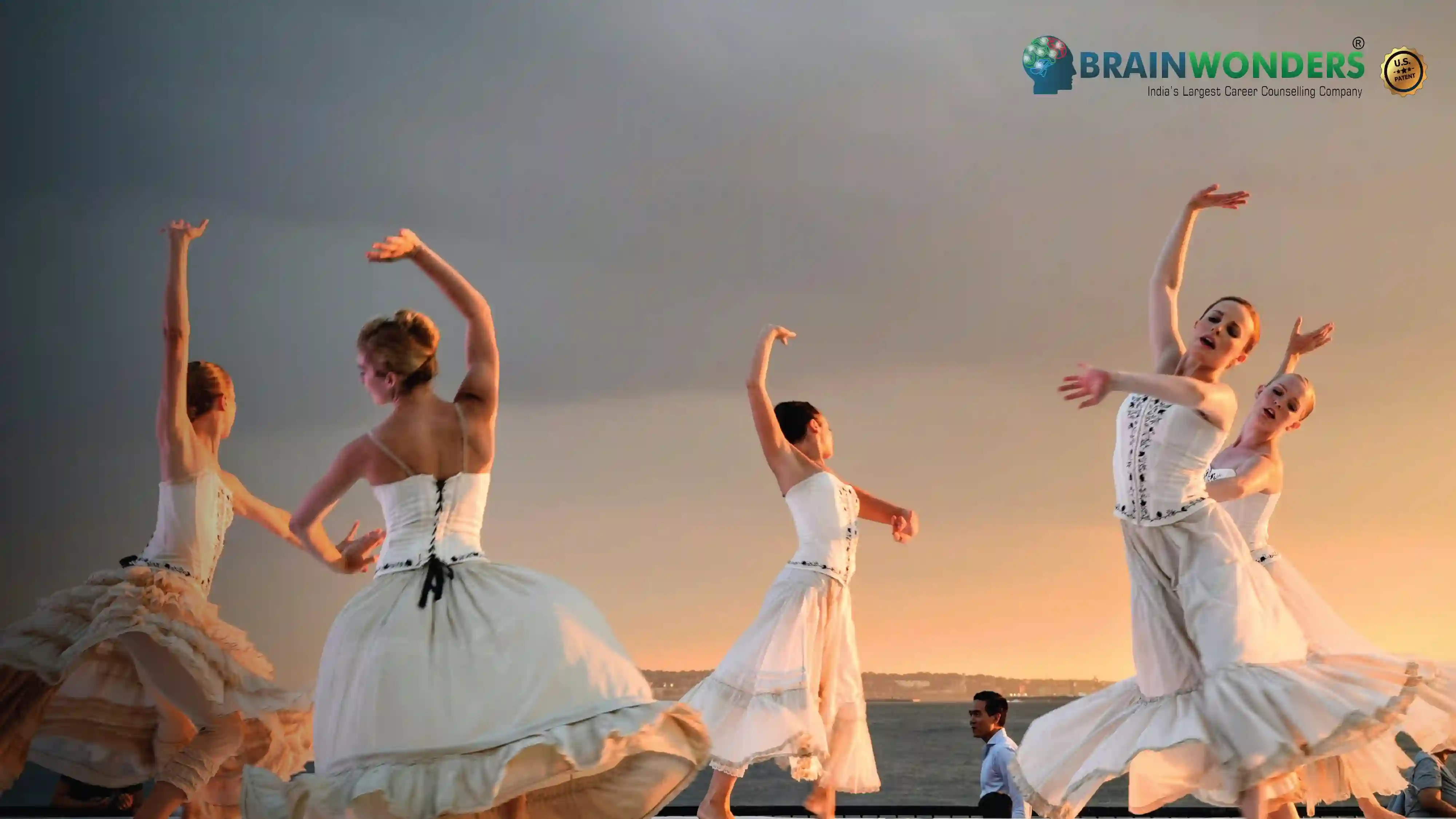How to become a Poet
Overview, Courses, Exam, Colleges, Pathways, Salary

Overview
Who is Poet ?
Poets are those who produce original written work in the form of poetry. Their job is to create attractive, engaging, and enlightening content structured as poems. They can put together poetry in many forms such as haikus, allegories, limericks, narrative poetry, sonnets, epics, free verse, blank verse, acrostic, ballads and many more. Poets often specialize in certain types of techniques or forms of poetry. Their original works suitably express a range of emotions, ideas, concepts, and experiences that move the readers and encourage them to think and feel a certain way. A poet can work on poetry books, magazines, journals, zines, advertisement jingles, greeting cards content, and songs. Poets can fall under two categories depending upon whether they want their audience to read the poetry or want to perform their work. Using an attractive blend of vocabulary, grammar, rhythm, and visual imagery, a poet can express themselves by reaching out to their readers through carefully chosen words.
Typical day at work
What does Poet do?
- Understand the creative needs of the client or the audience to identify the areas to tap upon through poetry
- Research extensively and introspect upon the subject matter of the poem
- Experiment with and utilize the various structures of writing poetry such as couplets, rhyme, meter, repetition
- Use different techniques such as metaphors, onomatopoeia, personification
- Create poetry pieces that are moving, engaging, and expressive
- Receive feedback from the clients, publishers, editors, or producers with regards to the poetry
- Revise the content or form of the poetry as per requirements and feedback received
- Stay up to date with the current and emerging trends,
- Promote own work through social media, blogs, book events, and PR
- Submit works of poetry to publishing companies, for grants and poetry prizes
Abilities and Aptitude needed
What are the skills, abilities & aptitude needed to become Poet?
For a poet, literary and language skills are the lifeblood of their profession. They should be equipped with an excellent vocabulary and knowledge of the grammatical rules of the language to ensure fluency of language. They should be highly creative and expressive to write emotionally and intellectually appealing poetry pieces. Additionally, familiarity with the poetic structures, techniques, and forms are also essential for a poet. They should possess a diverse portfolio of written material to increase their job prospects and reach a wider audience for their work. They should be inclined towards critical thinking and have the ability to be creative even under pressure. They should be highly observant and attentive to the finer details. Their communication and interpersonal skills are also crucial to network within the industry, connect to their audience, and work closely with publishers, editors and other professionals. They need to be self-motivated to produce quality work, which also requires continual efforts to practice one's creative writing skills and research the works of other poets. Patience, consistency and a commitment towards the art of writing are qualities that a poet must retain throughout their career.
Salary
Salary for Poet?
Salary of Poet is as follows :
- Minimum Monthly Salary: The minimum monthly salary for an entry-level poet may vary depending on experience, publications, and the region they work in. It could range from modest stipends for emerging poets to a few thousand INR or more.
- Maximum Monthly Salary: Highly experienced and renowned poets, especially those with numerous published works, awards, and recognition, may earn a monthly income ranging from a few thousand to several lakhs of INR, depending on their popularity and demand.
- Annual Salary: The annual salary for entry-level poets may be relatively low, ranging from a few thousand to tens of thousands of INR annually. Experienced and successful poets with book sales, speaking engagements, and other income sources may earn a maximum yearly income ranging from several lakhs to a few crores of INR.
- Highest-Paying Opportunities and Scope: The highest-paying opportunities for poets are often tied to their commercial success, including book sales, royalties, public speaking engagements, and participation in literary events. Established poets who receive prestigious awards and grants may also earn higher incomes. While financial success can vary significantly for poets, their scope lies in creating impactful and meaningful poetry that resonates with audiences, contributes to literature, and influences cultural expression. Poets' work enriches society, conveying emotions, perspectives, and experiences through language and art. Many poets combine their creative pursuits with teaching, writing workshops, and other related endeavors to share their passion for poetry with others. Though monetary compensation can be modest for some poets, their contributions to literature and human expression are invaluable, leaving a lasting impact on readers and the cultural landscape.
Pathways
How to become an Poet?
Entrance Exam
Entrance Exam for Poet ?
There is no as such common entrance exam conducted at state or national level. The admission to educational institutes will based on merit list obtained in 10+2 level. Some universities/colleges conduct their own subjective entrance exam and interview.
Courses
Which course I can pursue?
Best Colleges
Which are the best colleges to attend to become an Poet?
Industries
Which Industries are open for Poet?
While the primary focus of poets is on writing and artistic expression, their abilities can be applied in the following industries:
- Publishing: Poets can work as authors, editors, or content creators in the publishing industry. They may write poetry collections, contribute to anthologies, or work as poetry editors for publishing houses.
- Education: Poets can become educators, teaching creative writing, literature, or language arts at schools, colleges, universities, or writing centers.
- Media and Entertainment: Poets may find opportunities in media outlets, writing poetry for magazines, newspapers, or online platforms. They can also contribute as scriptwriters or consultants to film, television, or radio productions.
- Advertising and Marketing: Poets with a flair for creative communication can work in advertising agencies or marketing firms, crafting compelling copy and content for campaigns.
- Content Creation: Poets can explore careers in content creation, writing blogs, social media content, or website copy for businesses and organizations.
- Arts and Culture Organizations: Poets may work with museums, art galleries, cultural centers, and festivals, contributing to the promotion and celebration of the arts.
- Nonprofit and Community Organizations: Poets can engage with nonprofit organizations focused on literacy, education, or social issues, using their poetic talents to support various causes.
- Freelance Writing: Many poets work as freelance writers, taking on projects that involve poetry, creative writing, and content development for clients.
- Writing Consultancy: Poets with creative writing and language expertise may provide writing consultation services to aspiring writers or businesses.
- Corporate Communication: Poets can explore roles in corporate communications, crafting impactful messages and speeches for businesses and executives.
- Literary Arts Organizations: Poets may find roles in organizations that promote literature and organize poetry readings, workshops, and literary events.
- Translation and Interpretation: Poets with language proficiency may work as translators or interpreters, preserving the essence of poetic works in different languages.
internship
Are there internships available for Poet?
Internship opportunities for poets may not be as common as internships in other fields. However, poets can still find valuable experiences through various writing and literary training focusing on creative writing, publishing, and related areas. Here are some potential internship opportunities for individuals interested in pursuing a career as a poet:
- Literary Magazines and Journals: Many literary magazines and journals offer internship programs for individuals interested in working on editorial tasks, reviewing submissions, and gaining exposure to contemporary poetry.
- Publishing Houses: Some publishing houses, especially those focusing on poetry, may offer internships in their editorial or marketing departments.
- Writing Centers: Writing centers and organizations that support literary arts often have internship opportunities where poets can lead workshops, assist with events, or work on community outreach.
- Creative Writing Programs: Internships may be available through innovative writing programs at colleges and universities, where poets can work with faculty, organize readings, or contribute to literary publications.
- Nonprofit Literary Organizations: Nonprofit organizations dedicated to promoting literature and poetry may have internship opportunities related to event planning, outreach, or social media.
- Literary Festivals and Events: Some poetry festivals and events may offer internships to assist with event coordination, marketing, and artist support.
- Online Writing Platforms: Online writing platforms or literary websites may offer content creation, community management, or digital marketing internships.
- Literary Agencies: Internships at literary agencies can provide insights into the publishing industry and how poets navigate the publishing process.
- Cultural and Arts Organizations: Arts organizations that support poetry and literary arts may have internship positions focused on programming, events, or community engagement.
Career outlook
What does the future look like for Poet?
Poets can use their creative writing skills across a range of settings. Most professional poets work on a freelance basis; however, other ports often work with advertising agencies for contributing to commercials and publishing companies. They can even be employed as songwriters to produce musical compositions for operas, musical plays, choral works. They can work on a commission basis, writing or performing one-off poetry pieces for certain publications or events. Poets generally use multiple sources of employment to support their income. May poets branch out to become literary critics, editors, copywriters, or arts administrators. They can also work as tutors who provide workshops or as professors at universities and organizations that promote creative writing.
They can also therapeutically use their creative writing skills by holding art therapy sessions. Famous published poets are frequently invited to deliver speeches at public events. The increasing demand for creatively crafted content for a range of purposes from business to leisure has driven the demand for the services of professional poets.




.webp)
.webp)

